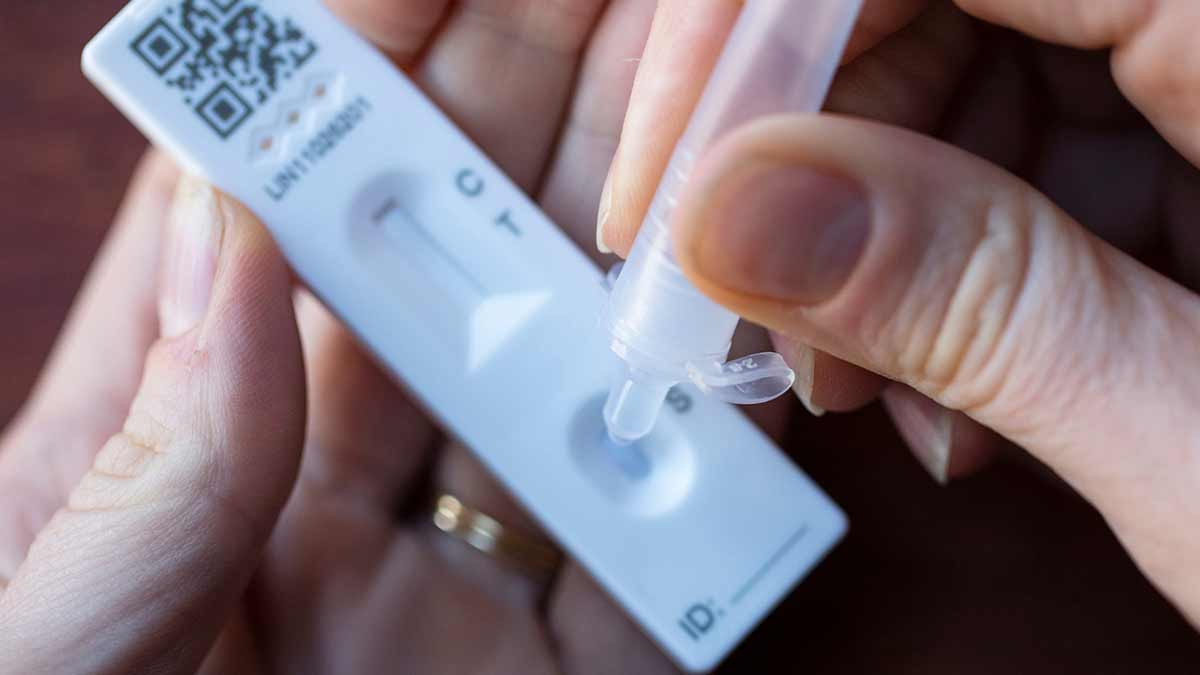
Further changes to the UK’s Covid-19 testing regime in health and social care have come into force this month (April) as the country continues to move on from the pandemic.
The changes introduced from 1 April, and announced by the UK Health Security Agency (UKHSA), mean routine asymptomatic testing will now stop, including testing on admission, for staff and patients across all health and social care settings, including hospitals and care homes.
The majority of this testing had already been paused since August 2022, said UKHSA.
Routine symptomatic testing of staff and residents in care settings will also stop, as will routine symptomatic testing in other settings, including prisons and places of detention, homelessness and refuge settings and asylum settings. All PCR testing outside NHS settings will end as well.
However, there will still be scenarios where testing will continue, albeit using lateral flow device (LFD) tests rather than PCRs.
These will be for people in the community and residents in care or other high-risk settings, if they have symptoms and are eligible for Covid-19 treatment. This is to enable rapid access to treatment, UKHSA has said.
Equally, some NHS staff with symptoms working on inpatient wards with severely immunosuppressed patients will still be eligible for testing, as will staff with symptoms who work in hospices.
All patients being discharged from hospitals into care settings will be tested. And there will be capacity to carry out outbreak testing in the NHS, care settings, and hospices, plus prisons and places of detention, homelessness and refuge settings and asylum settings.
Some hospital patients with symptoms will still be tested, where tests are needed to inform decisions such as ward transfers.
PCR testing will continue to be used by the NHS for diagnosis where needed for patients before accessing Covid-19 treatment or for specific personal clinically directed care.
UKHSA has said capacity will also be retained to ensure testing can be scaled up swiftly if a Covid-19 wave, or a new variant, results in significantly increased pressure on the NHS.
Dame Jenny Harries, chief executive of UKHSA said: “Fewer people now experience severe illness due to Covid-19, due to vaccinations, infection-related immunity and treatments for those who need them and the risk of hospitalisation has decreased overall.
“This means we are now able to further bring our testing programmes in line with management of other viral infections whilst still maintaining focus on those at highest risk to protect them from the virus.
“Covid-19 and other respiratory illnesses haven’t gone away and simple actions, like washing your hands and staying at home and avoiding vulnerable people when unwell, can make a big difference. For those at highest risk of severe illness, the spring booster programme also provides an opportunity to keep immunity topped up,” she added.
The spring vaccine booster campaign is offering jabs to all adults aged 75 years and over, residents in a care home for older adults, and individuals aged five years and over who are immunosuppressed.
Stay connected with us on social media platform for instant update click here to join our Twitter, & Facebook
We are now on Telegram. Click here to join our channel (@TechiUpdate) and stay updated with the latest Technology headlines.
For all the latest Health News Click Here
For the latest news and updates, follow us on Google News.
